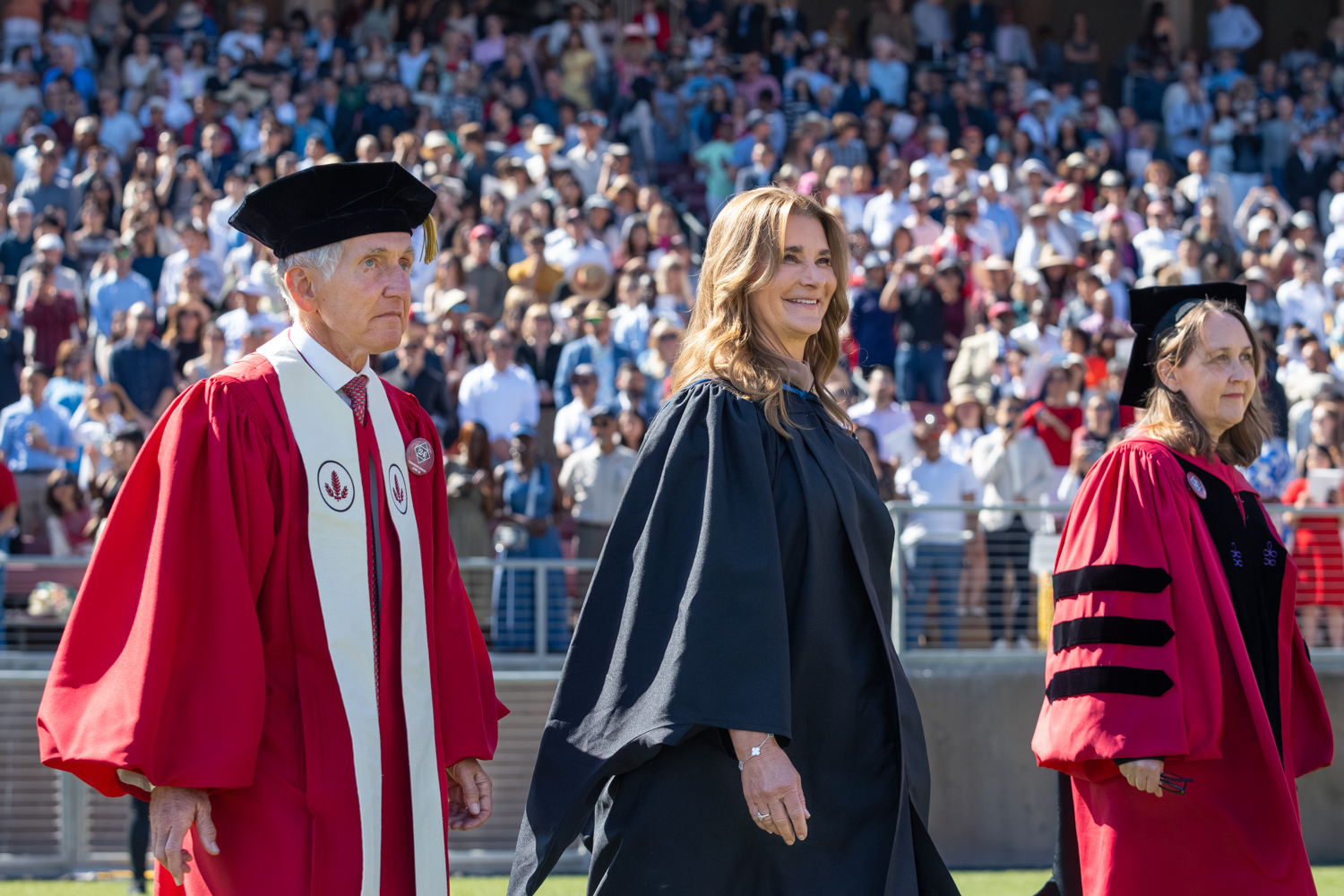You are not a wave. You are water.
Melinda French Gates
Photo: Andrew Broadhead
Melinda French Gates stood before Stanford’s Class of 2024 Graduation Ceremony and reminded us of a timeless truth: transitions are inevitable but don’t define us. Instead, how we navigate these changes—with empathy, openness, and a willingness to embrace the unknown—truly shapes our character.
During her powerful commencement speech at Stanford’s 133rd ceremony, Gates shared her experiences navigating life’s challenging transitions. From career changes and becoming a mother to enduring the loss of a close friend, she spoke candidly about the fear and uncertainty that accompanied each change. But through it all, she learned a crucial lesson: “The next day is when the real work begins. Because what we do the next day makes us who we are.”
The Essence of Radical Openheartedness
Gates’s message centered on “radical openheartedness,” a profound commitment to empathy, understanding, and connection. This goes beyond simple acts of kindness; it demands a deliberate and courageous openness to others’ experiences, perspectives, and emotions. It’s about breaking down barriers and building bridges, even in discomfort or disagreement.
To illustrate this, Gates shared a teaching by spiritual leader Ram Dass about two waves approaching the shore. In a state of panic, the larger wave cries out, “We’re done for.” But the smaller wave, calm and composed, responds, “You’re not a wave. You’re water.”
✿ Thank you for reading!
Subscribe to be our bestie, no spam—just good vibes once a month.
Now, let’s encapsulate the essence of radical openheartedness and talk about embracing transitions without losing sight of who we are at our core.
Why Radical Openheartedness Matters?
Radical openheartedness isn’t just a personal virtue; it’s a societal imperative. Here’s why it’s crucial:
Fostering Inclusion and Diversity: By valuing diverse perspectives and experiences, we create environments where everyone feels seen, heard, and valued.
Building Stronger Relationships: Openheartedness strengthens our connections with others, fostering deeper, more meaningful relationships.
Promoting Social Change: Approaching social issues with open hearts encourages actions that promote justice and equality.
Enhancing Personal Growth: Embracing openheartedness helps us grow as individuals, challenging our assumptions and broadening our horizons
Practical Steps to Embrace Radical Openheartedness
To truly embody radical openheartedness, consider these practical steps:
Cultivate Empathy: Make a conscious effort to understand others’ feelings and perspectives. Listen actively and without judgment.
Engage in Difficult Conversations: Don’t shy away from conversations that challenge your beliefs. Approach these discussions with an open mind and a willingness to learn.
Show Vulnerability: Be willing to share your own experiences and emotions. Vulnerability fosters trust and encourages others to open up.
Practice Mindfulness: Mindfulness helps us stay present and fully engaged in our interactions with others, allowing us to respond with compassion.
Commit to Lifelong Learning: Continuously seek new perspectives and experiences through reading, traveling, and engaging with diverse communities.
Advocate for Others: Use your voice and resources to support those who are marginalized or oppressed. Stand up against injustice and work towards creating a more equitable society.
Melinda French Gates’s speech at Stanford was more than just a call to action; it was a heartfelt plea for radical openheartedness. She reminded us that while transitions are inevitable, they are also opportunities for growth and connection. We can navigate these changes with grace and resilience by embracing empathy and compassion.
Let’s take Gates’s message to heart and strive to lead with empathy in all that we do. Together, we can build a more connected and compassionate world where we see each other as waves and as the water that sustains us all.
✱ If you liked this article, please share it with a friend who could use inspiration.
If you have a topic in mind or a story to share anonymously or with your name, email us at team@she.work









